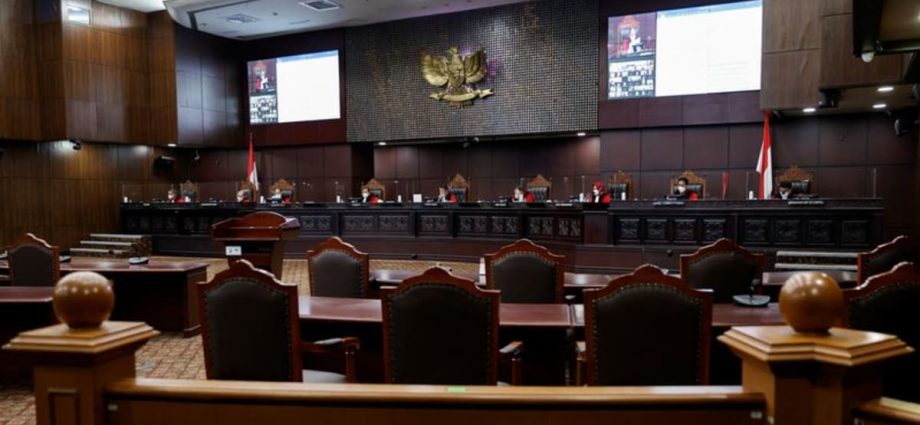
JAKARTA: The Indonesian Constitutional Court on Thursday (Jun 15) rejected a lawsuit that seeks to change the way the country runs its parliamentary election, contrary to a recent rumour spread by a former deputy justice minister that claimed otherwise.
Indonesia currently adopts the so-called “open-list proportional representation” system for its parliamentary election, allowing Indonesians to directly vote for a particular candidate.
It was adopted in 2009, replacing the highly critcised “closed proportional system” where voters can only vote for a political party at the polls.
In November last year, six plaintiffs including a politician from the ruling Indonesian Democratic Party of Struggle (PDI-P), questioned the constitutionality of the current system and motioned for the Constitutional Court to reinstate the old system.
The plaintiffs argued that the current system has turned the parliamentary election into a popularity contest which they say could jeopardise the country’s unity. The open-list proportional representation system, the plaintiffs argued, makes the election susceptible to vote-buying and costs to balloon.
The Constitutional Court however dismissed these arguments on Thursday, saying that these issues and threats exist regardless of which election system Indonesia adopts.
“(The court) rejects the plaintiffs motion in its entirety,” Constitutional Court chief Anwar Usman said in the ruling.
One of the eight judges present at the hearing, Justice Arief Hidayat, however issued a dissenting opinion and argued that there should be modifications to the current open-list proportional system to be more in line with Indonesia’s national principles, Pancasila.
Pancasila refers to Indonesia’s state philosophy that comprises five principles: Monotheism, civilised humanity, national unity, deliberative democracy and social justice.
A Constitutional Court’s verdict is final and binding with no opportunity for appeal.

